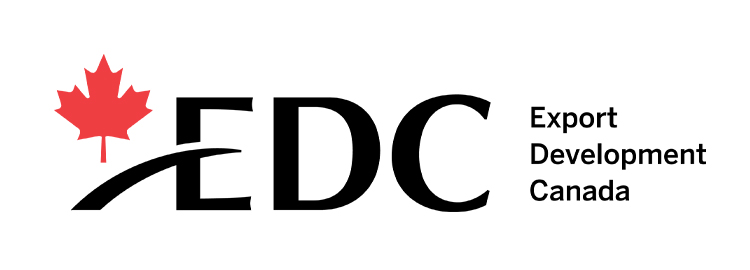Blog /
Friends and Partners: Japan-Canada Chambers Council 8th Meeting Recap Blog
Friends and Partners: Japan-Canada Chambers Council 8th Meeting Recap Blog
The annual JCCC meeting is an exciting opportunity to shape the future of the long-standing Canada-Japan relationship.

In Ottawa, on February 6, 2025, the Japan-Canada Chambers Council (JCCC) held its 8th annual meeting. Established in 2014 by the Canadian Chamber of Commerce and the Japan Chamber of Commerce and Industry (JCCI), the JCCC is a shared platform to build relationships, exchange knowledge, and advocate for policies to support bilateral trade and investment.
Trade and economic relations between Canada and Japan have been steadily expanding over almost a century of diplomatic and commercial relations. Japan is the world’s fourth-largest national economy and one of Canada’s most important economic and commercial partners. The annual JCCC meeting is an exciting opportunity to shape the future of the long-standing Canada-Japan relationship.
Welcome Remarks
Despite the volatile international context in which the meeting took place, a pervasive optimism for the future of the Japan-Canada relationship energized the space. Ambassador of Canada to Japan Ian McKay, Ambassador of Japan to Canada Kanji Yamanouchi, JCCC Co-Chairs Mr. Tatsuo Yasunaga and Mr. Rick White, as well as many business leaders from Canada and Japan, filled the room.




Panel 1: Securing Critical Supply Chains in an Era of Heightened Geopolitical Risks
Moderator: Motria Savaryn-Roy, Director, Geopolitical Economics, Sun Life
Speakers: Duane Hertzer, President, Optima Manufacturing; Dave Carey, Vice President, Government & Industry Relations, Canadian Canola Growers Association (CCGA); Greg Honig, Chief Commercial Officer, Sherritt International.
Insights from the panel
- Strengthening relationships with traditional trading partners remains essential.
- Regular labour disruptions add to economic instability.
- Free trade principles must be upheld while ensuring regulatory certainty.
- Environmental standards should not be compromised, even as trade policies evolve.
- Although diversification is widely discussed, the sheer size of the U.S. market presents challenges for smaller economies. As a middle power, Canada can expand its influence and grow its competitiveness by working collectively with partners like Japan.
- Canada has not made significant trade infrastructure investments since the 1970s. The political will and long-term foresight to see vital trade and transportation infrastructure expanded and updated have both been lacking. To get things built and ensure streamlined trade in all directions, the focus on infrastructure projects should shift from process-driven approaches to outcome-based strategies.

Keynote Remarks: Enhancing Bilateral Trade and Investment Promotion
Todd Winterhalt, Senior Vice-President, International Markets, Export Development Canada
- There is a significant gap between Canada’s trade with the U.S. and with Japan, but the momentum to close it is there. Japan is actively seeking reliable partners like Canada to support its national, energy, and food security. There is an opportunity to spur strong economic activity by deepening collaboration across Canadian and Japanese industries and sectors.
- Trade agreements provide certainty and certainty in trade is invaluable. Partnerships work best when both sides rely on each other, though uncertainty can still arise even in well-established relationships (i.e., Canada-U.S.).
- Just over half (51%) of Canada’s export value is generated by only 6% of Canadian companies.
- Export market diversification reduces economic vulnerability — companies engaged in multiple markets are less impacted by trade uncertainties.
- Exporting companies tend to perform better overall. Exporters who sell to multiple markets have 20% higher export volumes than those that don’t.
Mio Kawada, Executive Vice President, Japan External Trade Organization (JETRO)
- Canada presents a lucrative market for Japanese companies, with significant opportunities for expansion and growth. Continued collaboration can unlock further economic benefits for both countries.
- Japanese companies in Canada face challenges related to skilled labour shortages and wage increases. Despite these challenges, many Japanese companies are looking to expand their operations in Canada. Specific areas for growth are innovation (particularly AI) and food.
- Key industries such as travel and amusement, and automotive sectors in Japan aim to maintain or expand their presence in Canada.


Panel 2: Cooperation on Energy and Clean Technologies
Moderator: Chris Doornbos, President & CEO, E3 Lithium
Speakers: Takeshi Mitsui, President & CEO, Mitsui & Co. (Canada) Ltd.; Charles-Olivier Tarte, CFO, Nouveau Monde Graphite Inc; Makoto Susaki, President, MHI Low Carbon Solutions Canada.
Insights from the panel
- Energy security and economic resilience present an opportunity to process critical minerals domestically.
- While discussions around energy and supply chains are easy, achieving tangible results remains difficult. Diversifying supply chains is essential but cannot be done overnight — yet action must start now.
- Despite the complexities, no energy-rich nation should struggle economically if resources are properly managed.
- Chinese dominance in the critical minerals sector poses a significant challenge. Competing against state-backed enterprises like those in China requires a strategic and competitive business model. For national security, Canada must work to diversify supply sources outside of China and mitigate risks associated with over-reliance.

Japan-Canada Chambers Council Joint Statement
After the insightful presentations and panels, the JCCC Chairs signed the Joint Statement, reaffirming their commitment to maintaining and growing this vibrant trade relationship. The Joint Statement is shared with the Government of Canada on behalf of Canada-Japan industry.


The Future of the Japan-Canada Relationship
The regular convening of our two nations’ business leaders at forums like this one, and the upcoming B7 Summit in May, has never been more important.
As global trade grows more fragmented and the international context more volatile, it is essential Canada deepens established relationships with countries, like Japan, that share similar values — dedication to a free market economy, commitment to the rule of law, and a modern industrialized economy.
The Canadian Chamber of Commerce and the Japan Chamber of Commerce and Industry look forward to continued collaboration with our members, as well as the Canadian and Japanese governments, to drive forward progress on exploring new measures for facilitating bilateral trade while also strengthening existing systems. While there is a lot of work still to be done, there is also immense opportunity — growing the trade between Canada and Japan can lead to a more sustainable and prosperous future, not just for our two countries, but for the world.

Thank You to Our Sponsors


Other Blogs

Protecting Mid-Market Businesses: Cybersecurity for Growing Enterprises

Policy Matters: Why It’s Time to Go All-In on Canada’s Economic Sovereignty











